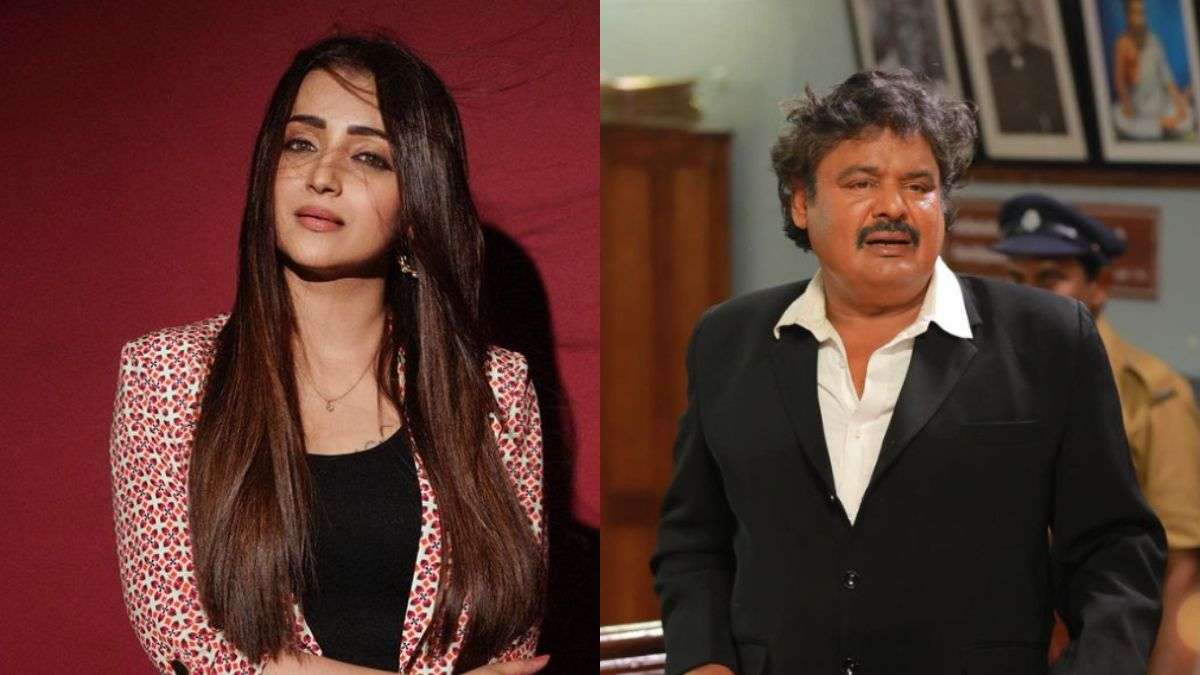Nadigar Sangam’s Response to Mansoor Ali Khan’s Controversial Remarks on Trisha. Amidst the uproar sparked by actor Mansoor Ali Khan’s disparaging remarks about actress Trisha, the Nadigar Sangam (The South Indian Artistes Association) has taken a firm stance, expressing their condemnation of Mansoor’s comments.
The association expressed profound dismay at witnessing a seasoned actor like Mansoor Ali Khan making derogatory statements about his female colleagues. Acknowledging the challenges that women face in the cinema industry, the statement emphasized the disheartening nature of such comments directed at actresses striving to overcome numerous obstacles in their careers. Mr. Mansoor Ali Khan was unequivocally censured for his irresponsible behavior as an actor, director, and producer.
In response to this disgraceful incident, the Nadigar Sangam is contemplating a provisional ban on Mansoor until he acknowledges his mistake and issues a public apology. The association also urged fellow actors to exercise care and caution in their public discourse.
The statement from Nadigar Sangam comes on the heels of Trisha’s robust response on social media against her Leo co-star. In a recent interview, Mansoor, known for his significant cameo in director Lokesh Kanagaraj’s blockbuster film Leo, made derogatory remarks regarding his inability to share screen space with Trisha in the movie and lamented not having “bedroom scenes” with her.
Trisha promptly took to Twitter, condemning the comments as sexist, disrespectful, misogynistic, repulsive, and in bad taste. She expressed her gratitude for not having shared screen space with someone as contemptible as Mansoor and asserted her commitment to preventing such occurrences throughout her film career.
In response to the controversy, Mansoor allegedly sent a WhatsApp message claiming a misunderstanding and attributing the situation to those seeking to defame him before his film’s release and the upcoming elections. He maintained that the interview was edited, and he has always respected his fellow actors.
The incident has ignited a firestorm on social media, with prominent members of the Tamil film fraternity, including director Lokesh, director Karthik Subbaraj, singer Chinmayi Sripada, actor-politician Khushbu Sundar, and actor Malavika Mohanan, rallying in support of Trisha and condemning Mansoor for his reprehensible statements.
The incident shed light on the broader issue of gender dynamics in the film industry. Many industry insiders and fans expressed concerns about the challenges female actors face and the need for a more respectful and inclusive environment.
Trisha’s bold response resonated widely, not just as a stand against Mansoor’s comments but as a call for a cultural shift within the industry. Social media campaigns sprang up, emphasizing the importance of respect and gender equality in the workplace, gaining momentum with hashtags such as #RespectForActresses and #TimeForChange.
Amidst the social media storm, the Nadigar Sangam’s proposed ban on Mansoor Ali Khan became a focal point of discussion. Supporters of the ban argued that such measures are essential to maintain accountability and uphold standards of professionalism in the industry. Critics, on the other hand, raised questions about the potential impact on an individual’s career and the necessity for a more comprehensive approach to address systemic issues.
Trisha’s courage in speaking out against the derogatory comments prompted other actors to share their experiences with sexism in the industry. It sparked a dialogue that extended beyond this particular incident, addressing the need for a safer and more inclusive space for everyone involved in the filmmaking process.
As the controversy unfolded, it became a catalyst for introspection within the industry, prompting discussions on implementing measures to ensure a respectful and equitable environment. The incident underscored the power dynamics at play and the responsibility that influential figures bear in shaping a positive and progressive industry culture.
The resolution of this controversy remains uncertain, but its impact on the broader conversation about gender dynamics in the film industry is undeniable. The collective response from the public, fellow actors, and industry insiders suggests a growing demand for change and a commitment to fostering an environment where everyone can thrive, regardless of gender.



